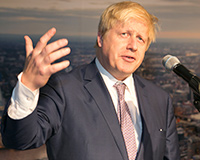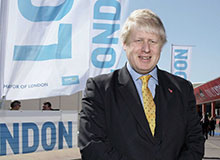 As the election dust settles and this weekend a new government is formed, campaigning has already begun for another election – to chose a London mayor to replace Boris Johnson.
As the election dust settles and this weekend a new government is formed, campaigning has already begun for another election – to chose a London mayor to replace Boris Johnson.
Johnson will be a hard act to follow. He created a powerful force field around him that made the job of London mayor a vital part of local strategy and the national headlines. For eight years he’s hardly been out of the news.
Perhaps this explains the fact that, with less than 363 days to go until the polls open on 5 May 2016, the field of candidates is thin.
Tory attempts to recruit former BBC Newsnight host Jeremy Paxman came to nothing, and Sebastian Coe decided his future lay elsewhere. But the party hierarchy is still understood to be searching. Sol Campbell, the former Arsenal and Newcastle defender, has volunteered for the job, while former New York mayor Michael Bloomberg may or may not be preparing a surprise campaign (see panel overleaf).
On the other side, Russell Brand might have made an eye-catching Labour choice, but he ruled himself out. Comedian Eddie Izzard also said no thank you, although his cocktail-frocked campaigning style would have added a swoosh of the exotic. Doreen Lawrence, campaigner and Labour peer, could also add an extra dimension. None has any record on property issues.
The most fancied choice – and at 5/2 the bookies’ favourite – is former Labour Olympics minister Tessa Jowell. Fellow Labour MPs Diane Abbott and David Lammy are also in the race but (so far) Sadiq Khan is not. Labour insiders say he is waiting to see what the general election brings – it could propel the Tooting MP into the cabinet as home secretary or justice secretary, and such high offices are not easily refused.
The only non-politician to join the ranks of Labour hopefuls is transport specialist Christian Wolmar. If 2016 is Labour’s year to win the mayoralty – and many think unless the Conservatives can find a dazzling candidate, it will be – Wolmar makes a useful study of how property policies play out in mayoral campaigns.
Wolmar has announced plans to pedestrianise Oxford Street and at least two other major shopping streets in the centre of the city, and has said London needs a major new approach to housing. He promises the creation of a London housing delivery agency. With the power to administer the mayor’s budget for housing investment which totals £1.25bn over the next three years, as well as borrowing and joint ventures.
Speaking to EG, Wolmar was sceptical about the wave of development. “Housing is the biggest issue in London, overriding even transport. The issue is supply – but it depends what housing is being supplied. Flats sold off-plan to overseas residents who may never set foot in them doesn’t do anything for London plc or for London people,” he says.
Unlike Tory rival Ivan Massow – who wants to liberalise rights of light laws to allow more skyscrapers – Wolmar doubts that building upwards is the answer.
He says: “We’ve a lot of high-rise already. And there is planning permission for a lot more. I’m not in favour of interfering with rights to light, or of creating vast alleyways of tall buildings that act like wind tunnels.”
According to Ian Fletcher, director of policy at the British Property Federation, the lack of big-hitters in the contest may be no bad thing. Fletcher – who worked with Siobhan Benita, the independent candidate in the 2012 contest – says the time for showmen may have passed.
“In the first few mayoral elections, big personalities were needed to wrestle powers from Whitehall – and its easy to forget those powers would not have come to London if we hadn’t had mayors who could stand up to central government. But as time goes on the job is perhaps less personality-driven,” he says.
“The test will be whether candidates can get to grips with infrastructure. Big issues like Crossrail 2 straddle the political divide and need continuity of support. Infrastructure is the biggest challenge facing any candidate,” he says.
London RICS policy officer Abdul Choudhury agrees. He says: “The London infrastructure plan 2050 identifies projects adding up to £1.3trn. We’re already seeing electricity substations at capacity, water connections too, this is going to have to be addressed.”
“We also need candidates to look at green belt. It’s misunderstood – already 65% of London is green, and while nobody is suggesting green belt is discarded, it does place enormous pressure on the developable land in London, and we need a review.”
Will the campaign revolve around these issues? Perhaps, maybe. Today the runners and riders are assembling at the starting line. You have just 363 days to make your choice.
Names to watch
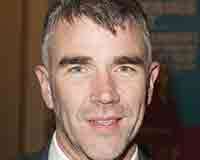 Ivan Massow
Ivan Massow
Massow, an insurance broker turned politician with a complex biography, pledges to raise the lower limit for stamp duty in London, tackle “right to light” issues to allow more high-rise development, and review conservation area policies which protect some neighbourhoods from development.
Stephen Greenhalgh
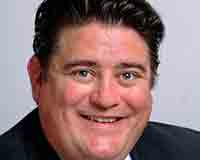 Greenhalgh is deputy mayor for policing, and is the centrist safe-pair-of-hands candidate for the Conservative nomination. Capital & Counties’ £8bn Earls Court redevelopment was one of the big property stories of his six years (2006-12) leading Hammersmith & Fulham council. Less successful were plans by Grainger and Helical Bar for a residential-led redevelopment of Hammersmith town hall, which the council first backed, then abandoned in 2011, in the face of pressure from protestors and mayor Boris. A more mixed-use scheme, including a cinema, replaced it.
Greenhalgh is deputy mayor for policing, and is the centrist safe-pair-of-hands candidate for the Conservative nomination. Capital & Counties’ £8bn Earls Court redevelopment was one of the big property stories of his six years (2006-12) leading Hammersmith & Fulham council. Less successful were plans by Grainger and Helical Bar for a residential-led redevelopment of Hammersmith town hall, which the council first backed, then abandoned in 2011, in the face of pressure from protestors and mayor Boris. A more mixed-use scheme, including a cinema, replaced it.
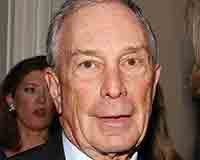 Michael Bloomberg
Michael Bloomberg
The former mayor of New York (2002-12) has been touted as an independent candidate – or perhaps as a Conservative. Either way there are questions over his legal eligibility. New York sources rule the idea out, but if it happened he would inject some glitz into an otherwise rather humdrum field. His strong record of rebuilding New York after the 9/11 attacks, and large-scale urban regeneration in Brooklyn, would be appealing. The ex-mayor is not to be confused with another rumoured runner, Michael Liebreich, still involved at Bloomberg New Energy Finance, the company he founded in 2004. It is possible that Mr Bloomberg’s interest is being confused with Mr Liebreich’s, or Mr Liebreich’s with Mr Bloomberg’s, or maybe neither are runners.
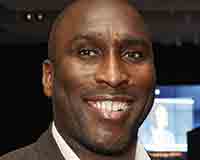 Sol Campbell
Sol Campbell
The retired Newcastle FC defender entered the mayoral race in February. He had previously been rumoured as a potential Conservative candidate for parliament. EG would have liked to discuss politics and property with the former England international, but is still waiting for a call from his brand managers.
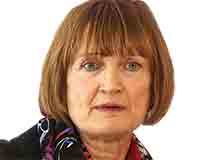 Tessa Jowell
Tessa Jowell
Probably the favourite, the former Labour culture secretary and minister for the Olympics, has already done a job not unlike the mayor’s in the run-up to the 2012 games. The Dulwich MP is familiar with high-level politics, but is not a showman in the Ken Livingstone and Boris Johnson tradition.
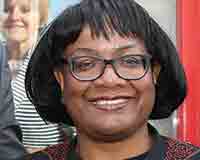 Diane Abbott
Diane Abbott
“If not me, who; if not now, when?” With these words, Ms Abbott entered the Labour leadership contest in 2010, and has now declared her intention to seek the Labour mayoral nomination for 2016. Feisty, fascinating and fissile, an Abbott mayoralty would be a roller coaster.
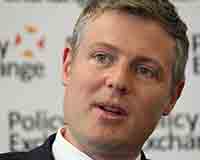 Zac Goldsmith
Zac Goldsmith
Conservative MP for Richmond Green, a leftish greenish candidate who could swing the contest for his party. He is thought to be tired of Westminster, and may find the mayor’s office more congenial.







